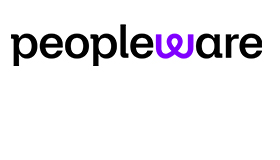Burnout poses a major challenge in contact centres. It impacts employees personally and the organization as a whole.
Occupancy rate — the ratio of actual working time to available time — is often pinpointed as having a major influence on employee well-being in general, and on burnout in particular.
The planning process has significant impact on occupancy, in several ways. The question is: how can your WFM solution contribute to better managing occupancy in your contact centre and, ultimately, help you combat burnout?
Barbara Jeandeau at injixo explores how to enable effective planning and a proactive response to varying workloads, taking into account employees’ skills and preferences.
How advanced features help maintain a healthy occupancy rate, which is key to employee well-being and a balanced and productive work environment.
Understanding the Impact of Occupancy Rate on Workplace Well-Being
Occupancy measures the time during which employees perform productive tasks as a percentage of their total availability.
More than just a performance indicator, proper occupancy management serves three objectives: maximizing productivity without compromising service quality or the well-being of employees. It’s a delicate equation to solve, and every variable counts.
Consequences of Poorly Managed Occupancy Rate
A poorly managed occupancy rate is a major cause of burnout, deeply affecting both employees and the organization.
Too High a Rate Inevitably Leads to Work Overload, Significantly Increasing Stress and Frustration
Constant pressure is a key factor in burnout, threatening employees’ mental health and engagement. Indeed, agents become overwhelmed when they have to move from one task to another without a break.
This sustained pace degrades service quality, causing frustration for customers who, after waiting for a long time, express their dissatisfaction to employees.
Stressed and under pressure, these employees become less efficient and make more mistakes, further aggravating the situation.
Conversely, Too Low a Rate Might Seem Less Harmful to Employees but That is Misleading
Under-occupancy leads to boredom and disengagement, reducing motivation. It also gives employees the feeling of being less valued, which paradoxically also contributes to the risk of turnover.
From a business standpoint, low occupancy means that resources are not being optimally utilized, leading to operational inefficiency that results in higher costs and reduced profitability.
It is thus essential to define a healthy and sustainable occupancy rate that fosters productivity while not threatening the mental health of its employees.
Customer Story: By using injixo, Thomas Cook reduced its occupancy rate from 93% to 86.5% on average across all departments, dramatically reducing burnout.
Maintaining a Sustainable Occupancy Rate
Thanks to advanced technology, we put the right number of staff in the right place at the right time, taking into account customer demand, employees’ skills, employee preferences, and more.
This holistic approach ensures effective demand management and a balanced work environment, directly contributing to burnout prevention and improving employee satisfaction.
But how does it do that? The whole WFM process has an impact on burnout. Let’s focus on three key areas: forecasting, scheduling, and intraday management.
Forecasting: the First Step Towards Reaching the Ideal Occupancy Rate
Effective management of a contact centre relies on an accurate anticipation of upcoming workload across all channels, e.g. calls, web chats, and emails.
The forecast is crucial: it lets you know in advance how many employees you will need to satisfy the variations in customer demand.
That enables you to manage the occupancy rate. Accurate forecasting is an essential lever in preventing the risk of overwork, waste, and disengagement, ensuring a balanced and efficient work environment.
The Approach
The platform stands out for its use of artificial intelligence algorithms to build super-accurate forecasts from historical data with very little user effort.
The methodology reliably predicts upcoming interaction volumes and average handling times, for all channels. The platform also lets you add business intelligence, indicating upcoming events that history could not predict. This allows for fine-tuning your forecast.
Key features include:
Integration of Historical Data:
A platform uses data from past interactions to build its forecasts. With the ability to generate forecasts up to 365 days (and soon, up to 2 years!) in advance upon data import, providing accurate short, medium, and long-term forecasts.
AI-Powered Forecasting:
It uses a self-learning forecasting model that is always on and always up-to-date. This advanced system auto-corrects erroneous data and anomalies.
It uses machine learning to identify patterns and trends across various time frames — from years and seasons to months, weeks and days. By continually adapting to new information, Forecast ensures optimal forecasting accuracy.
Event Planning:
It can also take into account planned repeating or one-time events that may affect demand, such as marketing campaigns, public holidays, sales, or product announcements.
This feature ensures that contact centres correctly anticipate the number of employees needed to effectively meet customer demand, even when historical data does not tell the whole story.
The system then calculates the number of employees needed to cover the anticipated volume of calls, emails, and chats, using key parameters tailored to each operational unit.
The system also adjusts the number of agents by accounting for shrinkage, which refers to the time during which agents are unavailable to handle interactions due to breaks, sickness, time off, etc.
Importantly, it allows you to deliberately specify an occupancy rate by inflating the raw required headcount to create breathing space between interactions.
Accurate Forecast for Employee Well-Being
Thanks to accurate forecasting, it significantly reduces the risk of overwork by helping you to avoid periods of excessive occupancy, while preventing waste, boredom, and disengagement through balanced occupancy.
Employees benefit from a more stable and satisfying work environment, where they can fully focus on meeting quality service goals.
Scheduling: Efficiency and Flexibility
Once an accurate forecast has been produced and the required staffing numbers are calculated, it’s time for the next critical step: scheduling.
This involves creating shifts for employees based on customer demand, while considering their skills and personal preferences.
Scheduling thus plays a crucial role in balancing operational demands and employee well-being to avoid burnout.
Indeed, by harmonizing operational needs with the preferences of your team members, you can ensure the well-being of your staff.
Efficient Scheduling
The platform stands out for its ability to create schedules that efficiently match the supply of employees with varying customer demand as closely as possible, as often as possible.
This approach allows contact centres to maintain an optimal occupancy rate, avoiding both overwork and underactivity of teams. But how is this schedule efficiency achieved?
Multiple Scheduling Methods:
When it comes to scheduling, it is not a one-size-fits-all solution. You can schedule your employees on fixed shifts or rotating patterns.
You can engage your employees with shift bidding and you can automatically create schedules that are fully optimized around customer demand. Importantly, you don’t have to select one method.
You might have a subset of employees on fixed shifts and the rest on optimized shifts, for example. And automation does all the hard work for you,
Optimized Schedules:
This is where the scheduling magic happens. powerful optimization algorithms automatically create shifts that are closely aligned with customer demand, while respecting all necessary constraints – including labor law and the working time agreements and preferences of individual employees.
Optimized Breaks and Lunches:
Optimization capability doesn’t stop with building schedules. Within the rules you specify, it can schedule breaks and lunches at times that optimize the coverage of customer demand and therefore stabilize occupancy.
Optimized Meeting Times:
With its ‘Meetings’ feature, it optimizes meeting planning. It selects the most appropriate slots for meetings, i.e. the times that will have the least impact on customer service, coverage, and occupancy.
It can be used for team meetings, 1:1 sessions between employees and team leaders, and individual training – ensuring that employees have dedicated time for the training and professional development they need.
Insufficient opportunities for personal growth are a known cause of staff turnover, so you skip training at your peril.
Flexible Scheduling
As well as its functionality for building schedules that optimally cover demand, it stands out for its ability to consider essential human aspects: the skills of employees and their individual preferences.
By doing so, the tool creates a work environment where operational efficiency is combined with job satisfaction and thus reduced burnout. But how does it actually integrate individual preferences and the skills of employees into its scheduling algorithms?
Multi-Skill Management:
This feature ensures that employees are assigned only to activities corresponding to their skills. It establishes a correlation between employees’ skills, such as their specific product knowledge, languages spoken, or proficiency across different communication channels, and the specific tasks they can be assigned to.
It lets you specify levels (%) of each skill, typically based on maturity and proficiency. Take the example of a recently hired employee.
On completion of initial training they might be assigned a 50% skill level. And considers that this employee contributes 50% of the effort compared to a fully competent employee.
It goes even further by allowing the anticipation of skill development over time. Our hypothetical newly-hired employee could be assigned a 50% skill level during a predefined onboarding period, after which they will automatically be moved to the 100% skill level.
Result: it adjusts the number of employees scheduled based on their proficiency, helping you to achieve consistent occupancy levels with an evolving workforce.
Shift Bidding:
This feature allows employees to get intimately involved in the creation of their schedules. Planners first build and publish schedules that optimize the match of required staff with provided staff, but without specifying which employees will work on which shifts.
Employees can then use the Me employee portal on their smartphones or other devices to engage with the process.
They can specify their first and second choices for each of the offered shifts, based on their personal preferences. An intelligent algorithm then allocates actual shifts to employees, maximizing the match between preferences and business requirements.
Intraday Management: When Things Don’t Go According to Plan
In the world of contact centres, plan and actual rarely coincide. Last-minute sickness, unexpected spikes in contact volume, short-notice time-off requests, or people simply not adhering to their schedule can all put your performance – and occupancy levels – at risk.
Fortunately, a platform comes with a set of functions that help you achieve all your performance goals and stabilize occupancy, even when reality threatens to completely de-rail your carefully-laid plans.
Intraday Management:
Real-time dashboards give you early warning of when contact volumes are higher or lower than anticipated.
They show you how staffing levels compare with what you calculated would be needed to satisfy customers and keep occupancy at a sustainable level.
And they enable you to take immediate, effective corrective action to align your workforce with demand before it’s too late.
The idiom ‘absence makes the heart grow fonder’ has been adapted for the contact centre with the pun ‘absence makes your friends work harder’.
A real-time schedule adherence feature gives you actionable insights about when and how your people are in and out of adherence with their schedules, so you can keep occupancy rates under control.
Time Off:
This simplifies the time off request process for employees through its dedicated mobile-optimized portal, Me.
This allows employees to easily submit their time-off requests anytime and anywhere, with complete transparency and autonomy.
Additionally, it enables planners to define periods during which time off requests cannot be placed, ensuring service continuity without sacrificing clarity for employees.
Time off management reduces instances of unplanned absence because employees are better engaged in the time off management process.
Shift Swapping:
Again using Me, employees can manage the exchanges of shifts with their colleagues on a self-service basis. This feature allows employees to propose shift swaps and view available swap proposals from their colleagues, on the same day or different days.
It can be configured to automatically authorize swap proposals without supervisor approval, provided that there would be no business impact, e.g. deficiency of skill provision.
The shift swap feature creates a collaborative environment where each employee has the opportunity to customize their schedule according to their needs and preferences, even at short notice. It enhances employee autonomy and improves employee satisfaction with the planning process since it fosters better work/life balance.
Shift swapping reduces the incidence of unplanned absences because it empowers employees to swap shifts. And it does that without impacting customer service or increasing the occupancy rate.
Conclusion
Effective management of occupancy rates is a vital tool for combating burnout in contact centres.
By delivering accurate forecasts and considerate, efficient schedules that align employees’ preferences and needs with customer demand and the need for business efficiency, it helps sustain vital equilibrium between productivity and the well-being of staff.
This blog post has been re-published by kind permission of Peopleware – View the Original Article
For more information about Peopleware - visit the Peopleware Website
Call Centre Helper is not responsible for the content of these guest blog posts. The opinions expressed in this article are those of the author, and do not necessarily reflect those of Call Centre Helper.
Author: Peopleware
Published On: 9th May 2024 - Last modified: 6th Dec 2024
Read more about - Guest Blogs, Peopleware






 Peopleware is the award-winning, multi-channel cloud workforce management application for contact centers and customer support. Over 300 customers, ranging in size from 50 to over 4,000 seats, trust Peopleware to bring work and demand in perfect balance while embracing the constant change in their business. With Peopleware, you spend less time and effort on manual forecasting and scheduling, while maximizing efficiency and focusing on what really matters: your people and customers.
Peopleware is the award-winning, multi-channel cloud workforce management application for contact centers and customer support. Over 300 customers, ranging in size from 50 to over 4,000 seats, trust Peopleware to bring work and demand in perfect balance while embracing the constant change in their business. With Peopleware, you spend less time and effort on manual forecasting and scheduling, while maximizing efficiency and focusing on what really matters: your people and customers.





























